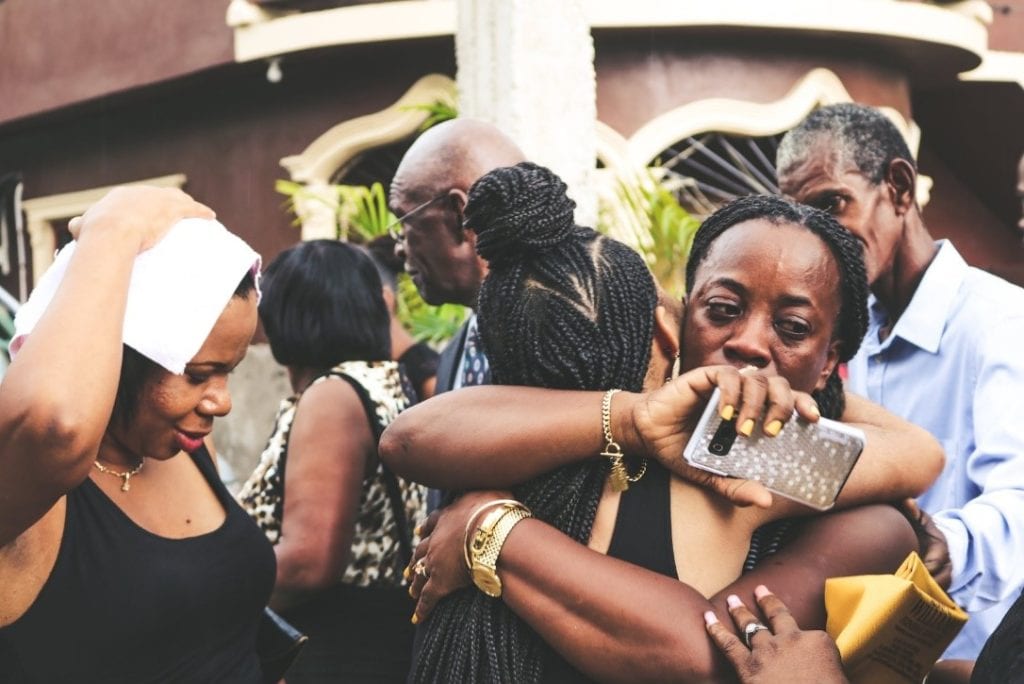The death of a loved one can be extremely painful, especially if it is completely unexpected. At the same time, it is expected of you to feel confused or lost about the procedure that follows after the death of your loved one. Emotional and logistic ambiguity during such moments can take a toll on your mental health and add to the conundrum. However, you must stay strong to make necessary arrangements, support your loved ones, and manage the situation without feeling overwhelmed. Here is what you should do after the death of your loved one while staying emotionally strong.

Contact Their Family Members
Needless to say, you must inform the dead person’s family first. Once their family members are informed, call their close friends and acquaintances who need to know about this tragic incident. Don’t just call them to pass on the information, but also give them the assurance of your presence. Phrases like, “Call me if you need to talk to someone” can go a long way. While it is expected of you to experience grief during such moments, you must also act on your feet to manage the situation. On the other hand, if you are too overwhelmed by the sad news, you can also ask for support from your friends.
Consider an Organ Donation
Unless your loved one was against the idea, organ donation can be considered. Check their driver’s license to determine whether they considered organ donation in the past. If you are not a family member of the deceased, ask their family. Since this procedure needs to be carried out urgently, make sure that you contact your local hospital immediately without causing any further delay. If the death has occurred in the hospital, inform the staff at the earliest. Since the procedure of organ donation is extremely time-sensitive, you must act fast. Until the hospital staff arrives to conduct the procedure, make sure that the body is taken care of.
Contact and Appointment a Local Funeral Service
You must make arrangements for the funeral at the earliest. Your loved one deserves a funeral, especially if they conveyed this wish in the past. Take help from a local agency that specializes in funeral services and helps ease your burden during this difficult time. Whether it’s a cremation or a burial, a funeral home helps with all relevant services. Before you contact a funeral home, check whether your loved one entered into a prepaid contract with any service in the past. Check relevant medical documents to gather this sort of information. If your loved one agreed to a full body organ donation, you can just concentrate on the funeral.

Draft an Obituary
Your loved one deserves an obituary. If you are not quite adept in this field, you can take help from a relevant professional writer or stick to an online tool to get a template. Consider your budget when writing the obituary because newspapers typically charge per line. If you have the luxury, stick to a longer obituary or publish it online for free. Include the accomplishments, milestones, good deeds, and achievements of the deceased. Once you have the first draft ready, ask your friends and family for an honest opinion and a review. Ask if they need any extra information to be added.
Contact Their Attorney to Sort Assets
If your loved one had an attorney, contact them to sort their assets and will. A local real estate lawyer or a family attorney is typically appointed in these situations. Contact them to gather any information regarding your loved one’s assets and real estate. At the same time, ask them about your loved one’s financial documents such as bank statements, prenuptial agreement, deeds, bearer bonds, stock certificates, brokerage statements, or any other documents related to investments made in the past. More importantly, gather your loved one’s insurance documents and contact the company to gather claims. Do not forget to check any debt or mortgages left by your loved one.
Contact Local Post Office to Forward Mail
If you possess the legal capacity of your loved one’s property or house, you can easily contact your local post office and request a mail forwarding procedure. By doing this, your loved one’s mail will be redirected to the new address where it can be attended to, and important subscriptions and unpaid bills can be handled.
This checklist will help you get your act together during the death of your loved one and make necessary arrangements after the tragic incident without feeling overwhelmed. Most importantly, take care of yourself and relax. Even though it takes time to overcome grief, this phase will pass too.

